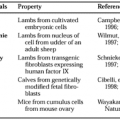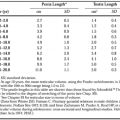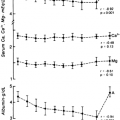FAMILIAL DYSAUTONOMIA (RILEY-DAY SYNDROME)
Familial dysautonomia, also known as Riley-Day syndrome, is characterized by autonomic instability. In neonates, the disease is manifested by dysphagia, difficulty in feeding, absence of fungiform papillae of the tongue, hyporeflexia, and slow movement.80 Later, abnormalities in sweating, temperature control, and blood pressure regulation become evident, along with impairment in sensations of pain, temperature, and taste as well as lack of lacrimation. Hypersensitivity to both adrenergic and cholinergic agonists and loss of skin flare after the injection of histamine are noted. A loss of small-caliber neurons in peripheral nerves and in dorsal root and sympathetic ganglia also occurs. The disease is transmitted as an autosomal recessive trait and affects mainly Ashkenazi Jews. The gene responsible appears to reside at 9q31-33.81 Only a few patients survive to adulthood. Usually, the diagnosis is self-evident. However, the labile blood pressure may lead to confusion with pheochromocytoma or neuroblastoma. Symptomatic postural hypotension has been treated with mido-drine (see earlier). Basal supine plasma levels of norepinephrine are normal, but no increase occurs on assumption of upright posture. Urinary levels of dopamine and homovanillic acid are increased, whereas levels of vanillylmandelic acid and methoxy-hydroxyphenylglycol are decreased.
Stay updated, free articles. Join our Telegram channel

Full access? Get Clinical Tree






